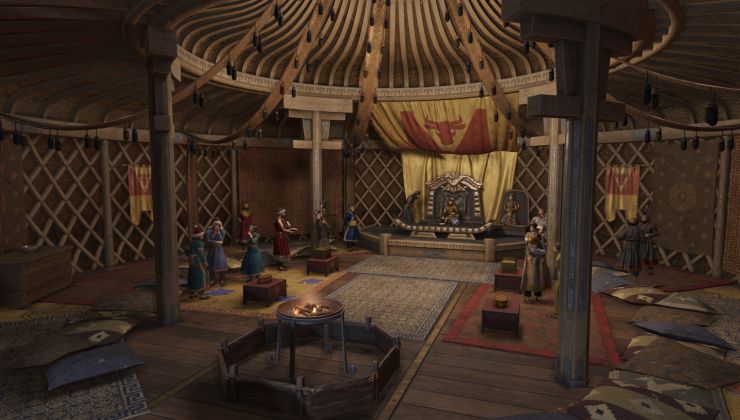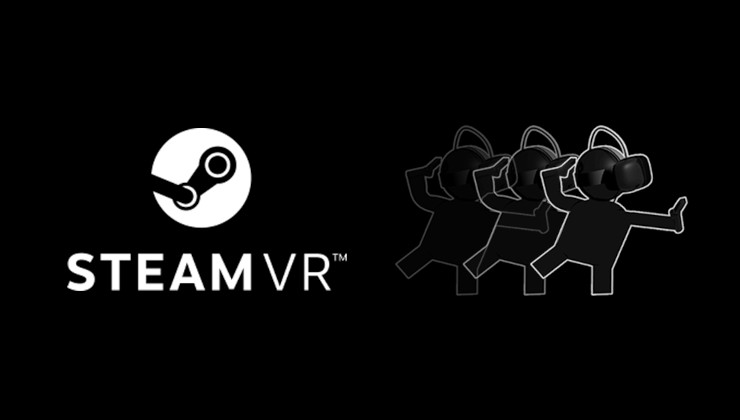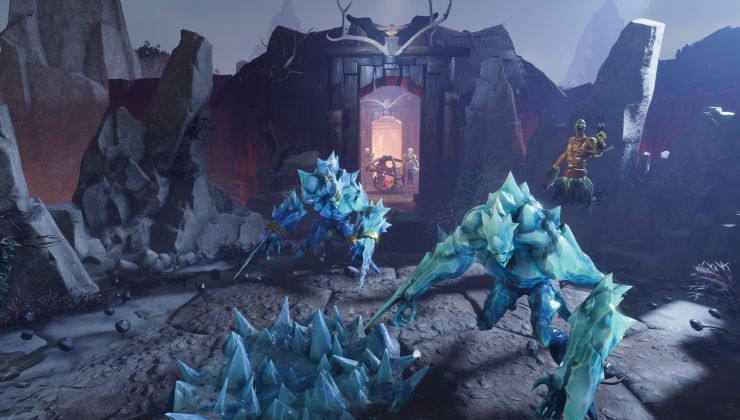It seems a recent update to glibc with version 2.41 release at the end of January, has been causing all sorts of problems for Linux gamers that have pulled in the update (mostly on rolling-release distributions).
Valve have already updated multiple titles to get around the issue including Portal 2, Left 4 Dead 2, Half-Life 2 and other updates on the way for some older games. This isn't just affecting Valve though, as more and more games are appearing to have problems. Some other quick examples with the bug include Celeste and DEAD LETTER DEPT., there's no doubt many more that it will affect but I'm not going to give a really long list here.

Pictured - Half-Life 2
There's an open bug report for glibc, with a recent reply from a developer noting that due to the backwards compatibility issue, the bug was reopened "to consider possible options for the release and the applications involved". This is not the first time glibc has caused problems with Linux compatibility for gaming, like a previous DT_HASH change that resulted in Easy Anti-Cheat breaking.
Not the end of the world though this time, developers and Linux users can still solve the issue themselves if needed running execstack -c on the affected libraries. Don't just take my advice on it though if you're a developer or gamer reading this, always look up what you're doing fully. Run at your own risk.
For game devs using FMOD, they were already aware of the issue, and solved it with FMOD 2.02.00. The FMOD team said for older versions, using the execstack command is safe.
Hopefully the glibc developers will be able to do something about this breaking change for various games.
It's also why I stick with Kubuntu myself. I love KDE Plasma, and don't want the hassle of such breaking changes so potentially often. I do wish I could more easily get newer Plasma releases though...
I want to switch to Arch from Kubuntu for the same reason. But I would want to set up a reliable and easy to use snapshot, system to roll back issues whenever one crops up, with the figuring out what actually went wrong being highly optional for me since I don't often have the resources ((money), time, or mental resources (stimulation, drive, interest, focus, patience)) to deal with it.
I do wish I could more easily get newer Plasma releases though...
I want to switch to Arch from Kubuntu for the same reason. But I would want to set up a reliable and easy to use snapshot, system to roll back issues whenever one crops up, with the figuring out what actually went wrong being highly optional for me since I don't often have the resources ((money), time, or mental resources (stimulation, drive, interest, focus, patience)) to deal with it.
Fedora KDE exists you know...
Plasma 6.3 landed in Fedora not even 24 hours after the official release from KDE. And it's a bliss with no issues on the two PCs I use. And that has been the case since I moved to Linux with Fedora KDE in March last year - almost a full year now of excellent and lightning-fast update delivery with no issues.
Last edited by Pyrate on 13 Feb 2025 at 3:02 pm UTC
Many such cases.
They really outta listen to Linus on not breaking userspace.If you want a somewhat more nuanced view of the issue, I suggest reading the [glibc bug report thread](https://sourceware.org/bugzilla/show_bug.cgi?id=32653), it has some interesting insights on causes, issues, and possible side effects, and by a couple of somewhat prominent people too.
AFAICT (and I'm certainly no expert on this, and a lot just goes over my head), much of the problem stems from changes in the security environment (parts of memory now being non-executable by default whereas historically there were no such restrictions), incorrect (or maybe too blue-eyed) use of tools (assumptions that did not hold true over time), and different interpretations between different architectures (x86_32 vs _64).
As far as I'm concerned, I'd rather have some accidentally incorrect games break for a period of time (if it's really that important a game, I'm certain there will be ways using older distro releases, emulation or whatnot), in exchange for another barrier against deliberately malicious software.
Linux is fantastic to open source projects, but awful to proprietary. That's why it's nice to have a layer between the OS and the game.
I assume KDE Neon was still too unstable for you? Just curious about your experiences; I haven't personally used it, and I know the developers say it's not a perfect compromise. Don't know if it would have been affected by the glibc bug, either.
Of course globally across everyone's Linux use, including servers and all that, clearly the importance reverses. So I can sort of understand their position, but it makes me glad MY distro is slower to update (Mint).
Last edited by Purple Library Guy on 14 Feb 2025 at 2:46 am UTC
I was so angered when John Carmack said Wine was the future of Linux as a gaming platform, but he was so damn right...
I usually default to using Proton to play games that even have Linux builds available if I can.
As they say, the most stable API on Linux is the Win32 API...
@Valck: For my personal use, games failing is in fact MORE important than another barrier against deliberately malicious software, because on Linux to the best of my knowledge in over 20 years I've never had any deliberately malicious software. I suppose sooner or later I might, but given the track record I could be dead before it happens. So this would give me a real problem in exchange for solving a problem I don't have.Oh I absolutely agree – to the point where it's a transient nuisance that can and usually will be fixed within reasonably short period, be it via emulation, containerization, or some other workaround, people working together on open solutions, if only by chatting about issues they have and potentially generating ideas for ways to work around them, that can be picked up and expanded upon by others.
If you look at the bug reports, it's almost exclusively anti-cheat software which straddles the line between stable and broken at the best of times, so there's not too much surprise here that some esoteric change breaks stuff like that – and I mean 'that with a ten-metre-pole', stuff I wouldn't want to have near me at any time.
What I just can't stand is them fanboiz crying tar and feathers because we needz our proprietary locked-down drug fix and we needz it nao.
--edit
Valck out. Please excuse me if I disappear for a while, stuff like this riles me up no end, and that's definitely not good for my health, mental or otherwise. Take care, all, and enjoy the gifts of open source ;)
Last edited by Valck on 14 Feb 2025 at 5:57 pm UTC
They really outta listen to Linus on not breaking userspace.
Ther kernel don't break userspace, userspace break userspace all the time
https://youtu.be/5PmHRSeA2c8?feature=shared&t=571
The problem is the update (glibc).
On rolling releases simply hold/mark/freeze glibc updates until you can't. Then do a update. Hopefully all other program have some workaround/fix on the new version, and Freeze again.







 13 Feb 2025
13 Feb 2025




 How to set, change and reset your SteamOS / Steam Deck desktop sudo password
How to set, change and reset your SteamOS / Steam Deck desktop sudo password How to set up Decky Loader on Steam Deck / SteamOS for easy plugins
How to set up Decky Loader on Steam Deck / SteamOS for easy plugins
See more from me